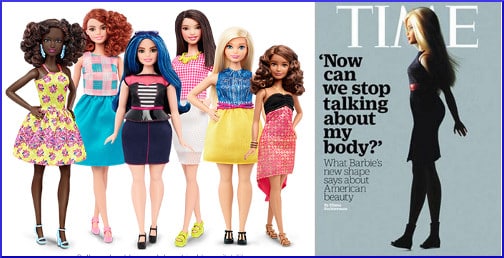
Professional comedians have a way of laying a finger on the pulse of truth. Tom Segura, who is a pretty hefty fellow, finds comedic raw material in his own weight and aims jokes at himself. He talks about eating so fast he forgets to breathe, before pausing to take a deep breath and reflect, “Oh yeah… my body also needs air.”
In his latest hour-long special, he says:
I don’t even want to lose weight to live long or be healthy. I just want to be able to make fun of fat people again.
Of course, some people who think they are funny say things that are deemed by others to be exceedingly unfunny. Nicole Arbour seems to think of herself as a courageous crusader who only tries to do good. One of the her famous quotations is, “If we offend you so much that you lose weight, I’m OK with that.”
Last September, Arbour caused a social media ruckus with a 6-minute video called “Dear Fat People,” which caused YouTube to take the nearly unprecedented step of shutting down her channel for a while. This, of course, afforded her even more publicity and, in some quarters, status as a free-speech hero.
On the other hand, it was reported to have lost her some film work, though she probably isn’t going broke as a result. Still, the video gained her 30,000 new YouTube followers. Not just views, but fans who specifically requested to be associated with her.
A few months later, Arbour followed up by unleashing “Dear Fat People 2 — The Second Helping.” It’s about the same length as the first part, and equally as rude (with some X-rated language). Arbour contends that the world is going crazy, and one example she gives is the presence of a plus-size model on the cover of Sports Illustrated magazine.
She says fat people thin-shamed Barbie until the doll had to gain wait, and now looks like she eats cheeseburgers. This was in reference to the Mattel company’s decision to reissue the iconic doll in new shapes, an occurrence of such cultural significance that TIME magazine made it their cover story, with the provocative question, “Now, can we stop talking about my body?”
From the public, the new petite and tall new versions of Barbie elicited yawns, but Curvy Barbie inspired comment, with some calling her the major feminist development of our time, or at the very least, “an important opportunity for redirecting some of the body-shaming tendencies that take root at frighteningly young ages.”
For Slate.com, Christina Cauterucci summed up:
For her TIME cover story, [Eliana] Dockterman watched unattended little girls playing with the doll… In one session, for the pleasure of her peers, a 6-year-old speaks as if she’s the curvy doll. Here’s what she says: “Hello, I’m a fat person, fat, fat, fat.” […] Another child says she doesn’t want to hurt that Barbie’s feelings, so she spells it: “F-A-T.”
Covering this story, Alan Levinovitz asserted that Arbour is not “some lone hate-spouting troll” but a representative of mainstream beliefs, even the beliefs of health professionals, who see obesity as indicative of a lack of personal responsibility. To him, endorsing that attitude not only denies the humanity of overweight people, but diminishes the humanity of fat-shamers as well. Every incidence of
fat-shaming encourages more of the same.
He explores the interesting premise that, if we’re going to fat-shame, we might as well go ahead and poverty-shame, too, because poverty is a more accurate predictor than obesity of such conditions as type 2 diabetes and cardiovascular disease. He sarcastically writes:
Nicole Arbour — and the Harvard epidemiologists — emphasize that losing weight boils down to a simple formula: Eat less and exercise more. Well, if that’s true, then poverty also boils down to a simple formula: Spend less and work more. Calories in, calories out? Dollars in, dollars out. I mean, if you’re “really serious” about getting out of poverty, it’s not rocket science. Right?
Your responses and feedback are welcome!
Source: “Tom Segura – Mostly Stories Review,” PasteMagazine.com, 01/12/16
Source: “Little Girls’ Reactions to the New ‘Curvy’ Barbie Prove Why We Need ‘Curvy’ Barbie,” Slate.com, 01/28/16
Source: “Shame on People Who Fat-Shame,” Slate.com, 09/11/15
Image source: Mattel/TIME (fair use)

 FAQs and Media Requests:
FAQs and Media Requests: 











